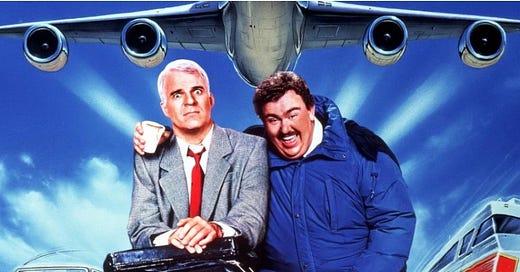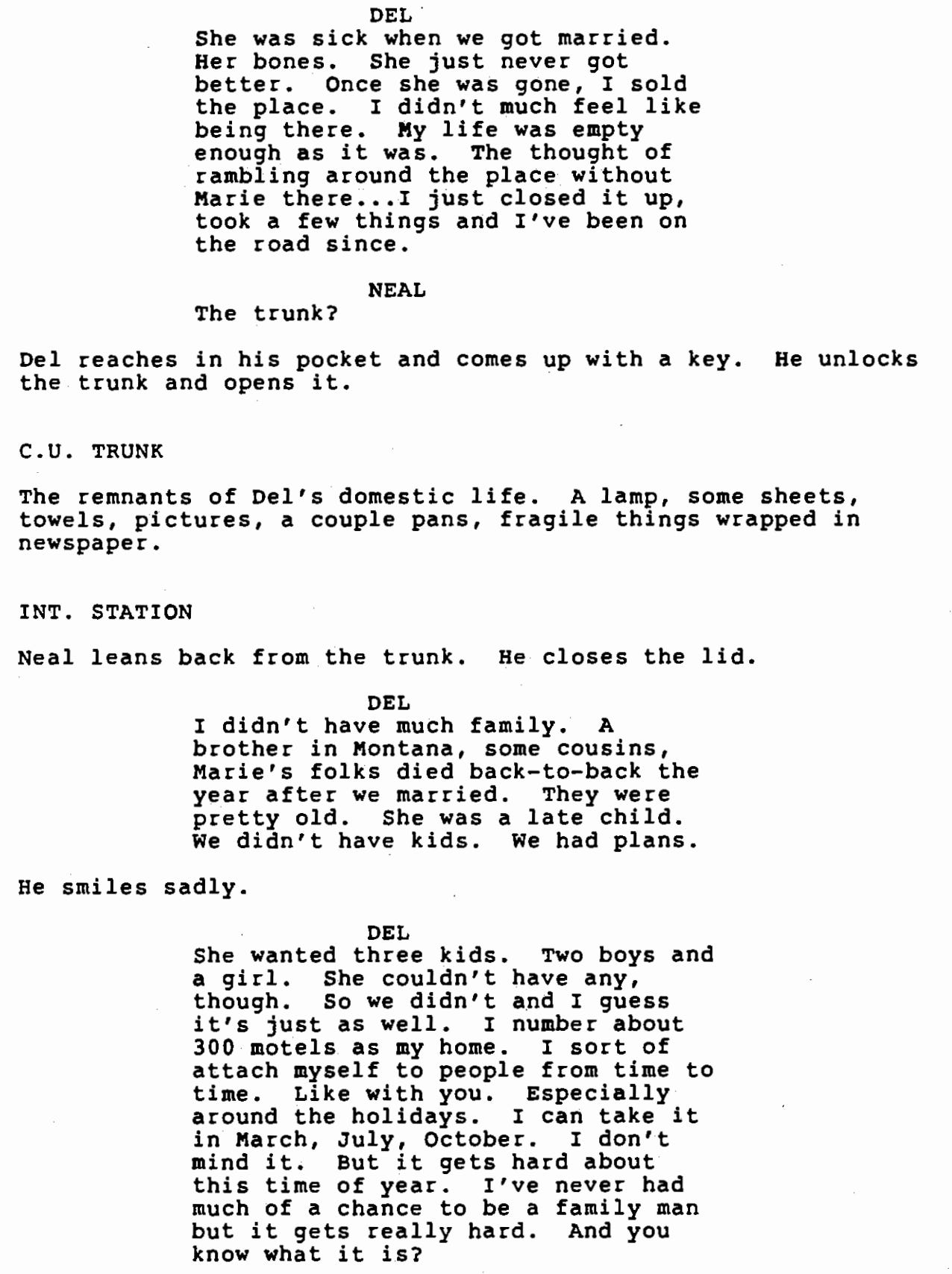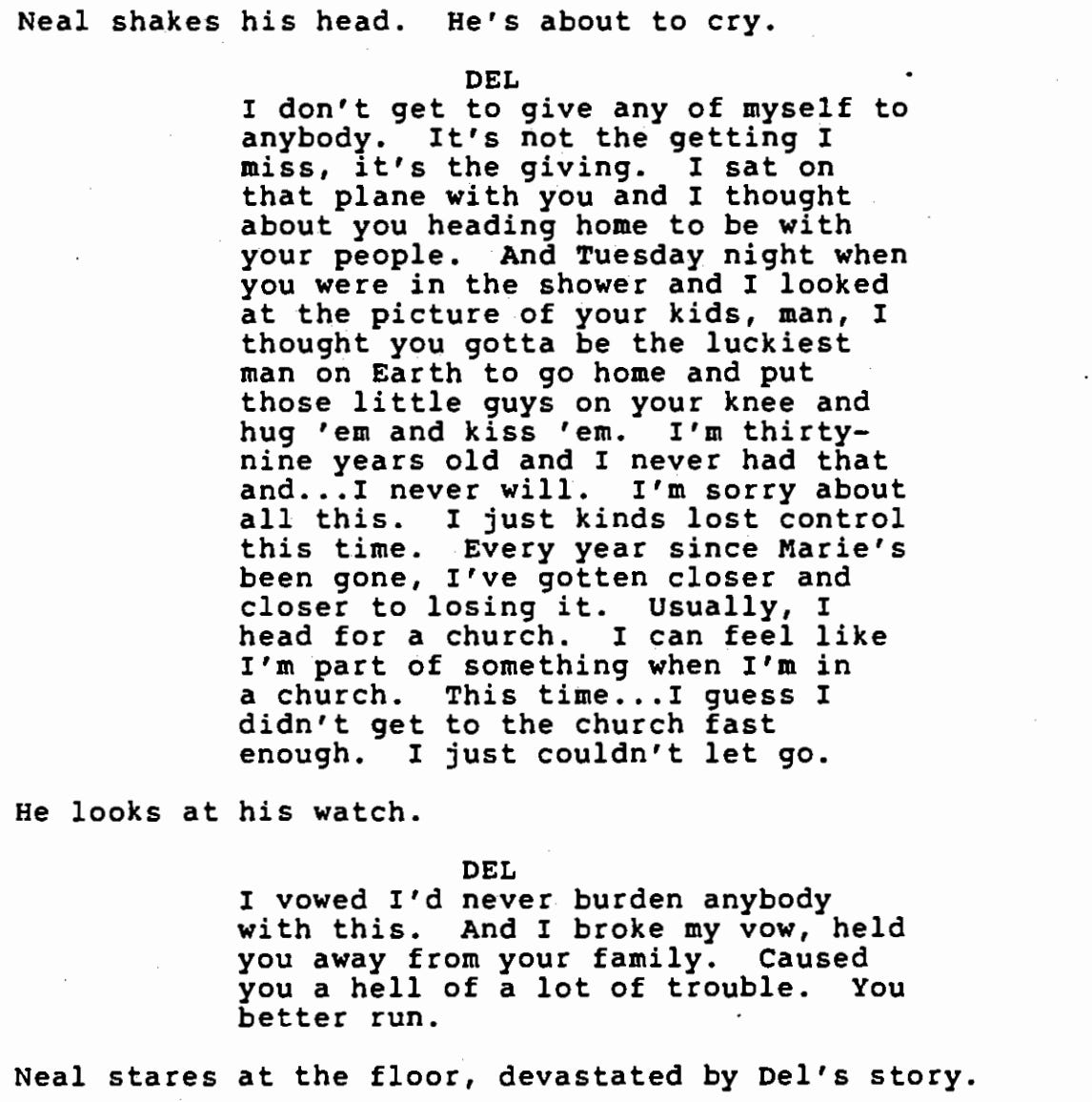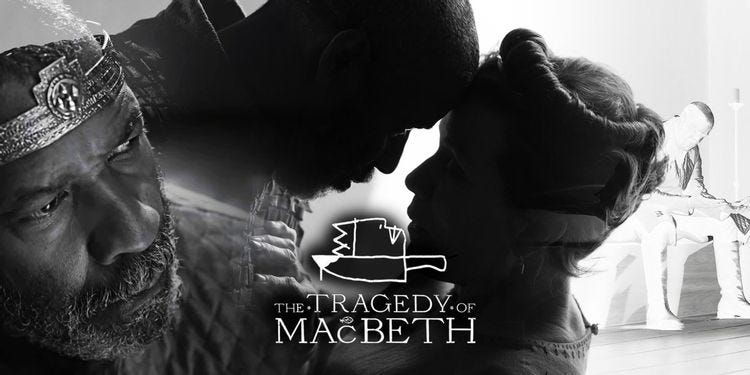“Planes, Trains, and Automobiles” Should Be Considered a Classic
The only Thanksgiving movie is also extremely good
When I was young, there was a thing called “comedy movies”. They were like movies today, except that they cost about as much to make as a birdhouse, and the only special effect was groin protection to allow people to get hit in the nuts without injury.
Even so, comedies had cultural cachet. You were guaranteed a laugh if you said “shagadellic!” or “these go to eleven” — personally, I am constitutionally incapable of hearing the word “surely” without repeating the “don’t call me Shirley” gag from Airplane. It was a beloved genre, and it’s not entirely clear why we’ve ditched it in favor of: 1) Blockbuster franchises, and 2) A million movies about what it was like to be gay at various points in history.
1987’s Planes, Trains, and Automobiles is a well-remembered comedy. It stars two legends — Steve Martin and John Candy — and was written by John Hughes, who was so prolific that he’s one of two screenwriters whose name you might actually know (Aaron Sorkin being the other). Hughes’ writing credits include Home Alone, Ferris Bueller’s Day Off, Vacation, Sixteen Candles, and several other hits, which is nuts — it’s like if one band had made Sergeant Pepper, Pet Sounds, and Electric Ladyland. And any discussion of why comedy movies have gone almost extinct should cite Hughes’ retirement in the ‘90s as a major event.
I’m here to argue that Planes, Trains, and Automobiles shouldn’t just be well-remembered; it should be considered an all-time classic. There are few if any movies that combine humor with pathos so well — it’s 90 minutes of laughs building up to an emotional ending that’s completely earned. It stars two of the best comic actors of all time, and they’re perfectly cast. Plus, it’s a Thanksgiving movie, and there should be more Thanksgiving movies since the Christmas-to-Thanksgiving movie ratio is 70,000,000:1.
Any discussion of comedy should start — and also arguably end — with the jokes. And the jokes in Planes, Trains, and Automobiles are really good. This is a great bit:
And this is a great bit:
And this bit made my dad laugh so hard when I was seven that I got out of bed to see what was going on:
Unlike classics like Monty Python and the Holy Grail and The Jerk, which get laughs from cartoonish absurdity, the jokes in Planes, Trains, and Automobiles come from real life. The movie is a buddy comedy that pairs an upper class tightass (Martin) with a lower class buffoon (Candy), and both seem like real people. This isn’t a movie where Derek Zoolander’s sexiness can change the laws of physics, or where you can kill a man in a news anchor brawl and then continue with your day. This is a movie that involves real people, except that they’re funny.
The upper class/lower class pairing feels like something that would be bungled by most screenwriters today. They’d probably feel the need to tell us which character is the “bad guy”, and it would probably be Steve Martin’s character. The assumption by the (presumably well-off) screenwriter would be that the rich guy has to be a dick preying on the lower class guy — because all “marginalized” people are hapless victims, right? — and the jokes would be about how the upper class guy is a huge asshole. The writer would basically do the “noble savage” trope but for non-affluent white guys, and Candy’s character would be wholesome and honest and also boring as hell. But Hughes doesn’t condescend: Candy’s character is annoying as hell — despite being well-intentioned — and that humanizes him.
But we watch the movie through Steve Martin’s eyes. We start with Martin — he encounters Candy about five minutes in — and the movie is literally his journey. We laugh at the stuff that happens to him because we imagine it happening to us. And that means that Martin’s evolution, in which he accepts that Candy’s good intentions outweigh his preternatural ability to be annoying, is one that we experience, too. Which happens to be a good lesson to learn, because all of us have at least one good-hearted but annoying person in our lives, and many of us have 15-20.
In the recent documentary about Steve Martin’s life, Martin says that a deleted scene from the end of the movie laid out John Candy’s character’s entire backstory. Martin reads a bit of the scene and gets emotional, and you can see why — the scene is below (and yes, this is obviously a spoiler). This would have come right after John Candy’s character reveals that his wife has been dead for fifteen years.
My two cents (which nobody asked for, and which is overvalued even by the phrase “two cents”) is: It’s good that they cut that. They didn’t need it. We know that Del’s story is something like that — he’s alone, that’s the upshot. The details of how he got there don’t matter as much as the sudden clarity about why he is the way he is. And what did make it to the screen packs an emotional punch, which is incredible, because the “emotional payoff” in most comedy movies is usually some tacked-on crap that should have the chyron: “SORRY FOR THIS CLUMSY ATTEMPT AT SCHMALTZ — THE STUDIO SAID THE THIRD ACT NEEDED EMOTIONAL STAKES SO WE THREW THIS TOGETHER.”
Comedy famously doesn’t age well, and if I’m being honest, time has sapped Planes, Trains, and Automobiles of some of its spice — using the f-word 15 times in 40 seconds was hilarious in 1987, but only somewhat funny now. But in another way, time has made the movie better. Because it reminds us that short, funny movies with relatable characters are possible, even if thinking about how they pulled that off from today’s vantage point seems like a “how did the Druids build Stonehenge?”-level mystery. People remember Planes, Trains, and Automobiles as a good movie, but I think they’re still selling it short: I think it’s as good as a very good genre ever got.










Just wanted to wish everyone here and Jeff especially, a happy, safe and warm Thanksgiving. Jeff, thanks for many many many funny and thoughtful moments during the year.
100% agree. I remember watching this on Laserdisc as a kid and my friends and I watching our Dads double over in laughter.
I haven’t really thought about it in a while, but man movies used to be fun.